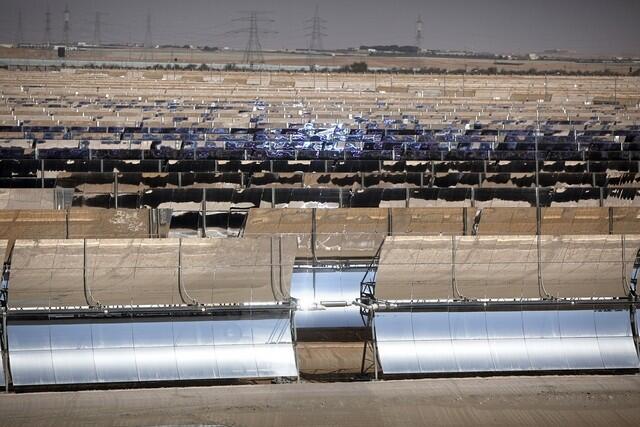Reducing red tape and providing easier financing options could be the key to increasing the use of solar power in residential buildings, experts said.
This year, the emirate experienced significant growth in the number of systems being installed, as a result of efforts by Dubai Electricity and Water Authority (Dewa) under the Shams Dubai solar initiative. The majority, however, were installed on government buildings or businesses, with homeowners so far shying away from solar.
Bureaucracy and connection delays are the biggest hurdles, plus the high number of tenants reluctant to spend on a property they do not own.
Oryx Solar installed a solar system at a house in Victory Heights in May but it is still not registered under Shams because of red tape. Hennie Schoeman, the company’s project manager, said: “Since implementation of the Shams programme, we have received many inquiries about residential systems, but clients always cancel when there is uncertainty about the connection time.
“This is why most contractors are staying away from residential work. The connection processes and procedures are just not up to scratch yet.”
A solution could be to simplify registration for homeowners, Mr Schoeman said. At present, procedures are the same for residential and industrial systems.
This sentiment was echoed by Vinod Anthraper, sales and marketing manager at Sharjah’s Value Addition. Earlier this year the company had to cancel and refund an order for a residential solar system because the approvals process was taking too long.
Mr Anthraper said approvals procedures required by private developers, as well as by Dubai Municipality, were too time-consuming.
“We are not actively pursuing household projects but if a customer wants to take it up, we will leave all the approvals as their responsibility,” he said.
Mr Anthraper said one way to speed things up could be to create a single-window service for homeowners at Dubai Municipality.
At present, requests can be submitted only through a consultant or civil contractor. A special directive from the government to developers such as Emaar, Nakheel and Dubai Properties would also simplify the process.
Karel de Winter, general manager of Alsa Solar, said Dubai’s transient population also created a challenge in the uptake of solar.
Even with falling prices, a small system with peak capacity of five kilowatts is about Dh27,000, and with the often limited duration of expatriates’ stays in the UAE, makes people reluctant to commit to investing.
But based on the electricity rates expats pay, a small system would pay for itself in about six years, said Mr De Winter.
UAE nationals are charged less for electricity so for them the financial incentive is even smaller.
Still, financing deals such as plans being discussed under the Green Deal crowd-sourcing platform could help provide incentives by giving home owners easy access to attractive financing options.
Dewa could also promote the benefits of solar roofs when sending customers information about their electricity and water bills, Mr De Winter said.
“This could make it very straightforward, very simple about what solar could do for them because all of them have the same questions,” he said.
Despite these hurdles, Shams Dubai is growing overall. Projects with a total peak capacity of 3.5MWp have been connected, of which Alsa Solar has installed about 1.7MWp, said Mr De Winter.
Mr Anthraper said that in 2016, for the first time, solar generated more revenue for Value Addition than its core business in industrial boilers.
“Now every institution wants to play their role in having some renewable energy in their facility,” he said, adding he believes the main motivation for companies was political – with a keenness to adhere to Vice President and Ruler of Dubai Sheikh Mohammed bin Rashid’s vision for a smart, green city.
Mr De Winter said solar roofs were proving particularly interesting for companies with high electricity bills.
“A lot of people think that solar is still expensive but in essence it is not,” said Mr De Winter. “It is not rocket science, it is actually straight economics – on their roof, everybody has a small oil well.”
The National approached Dewa for comment.
Source: The National
By:Vesela Todorova











